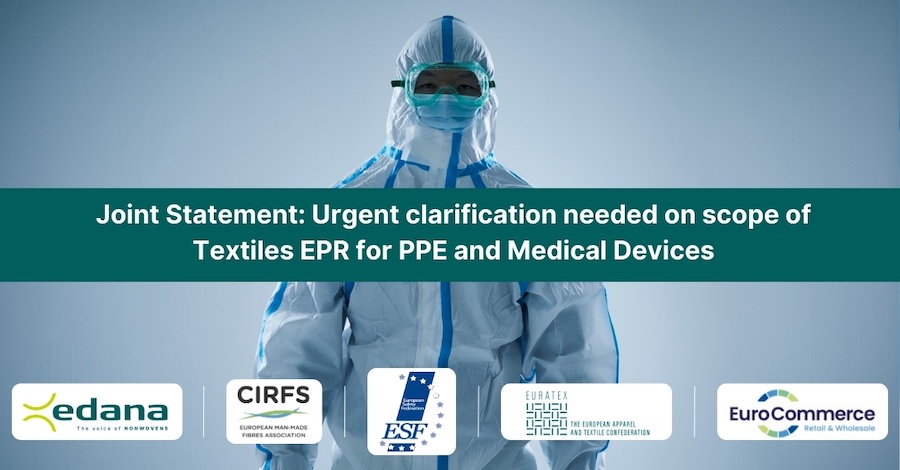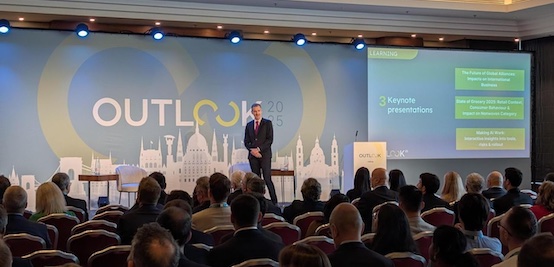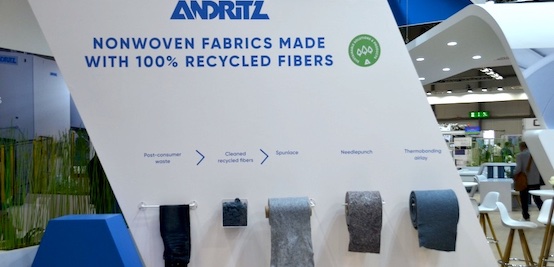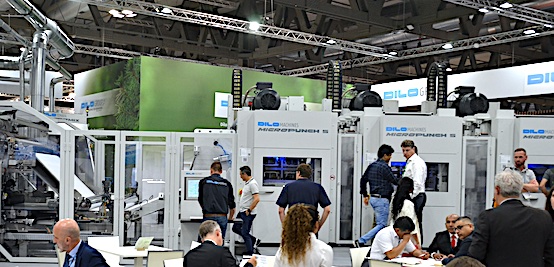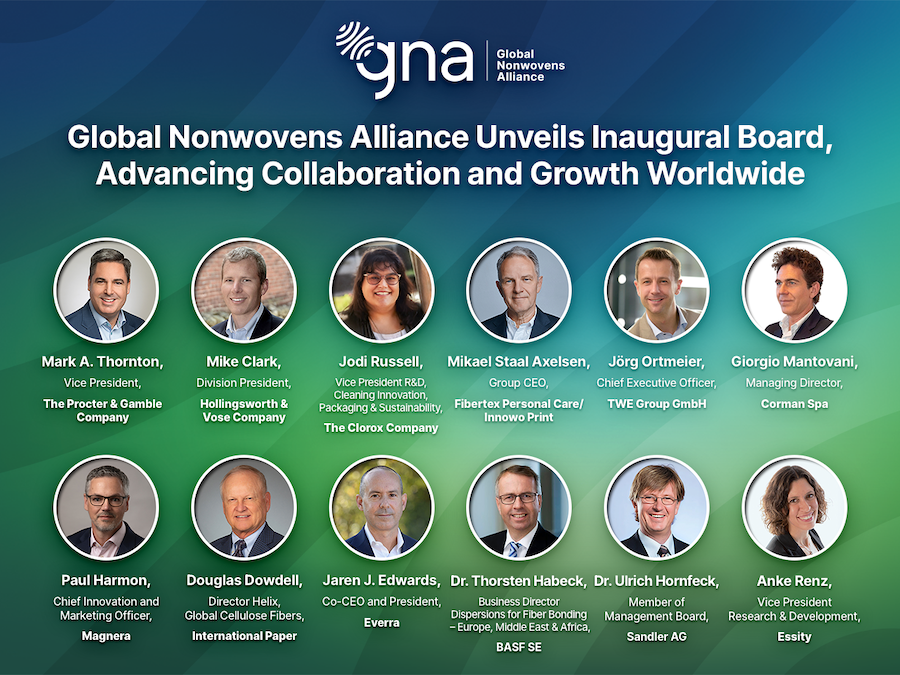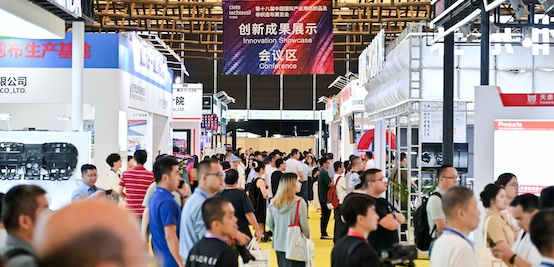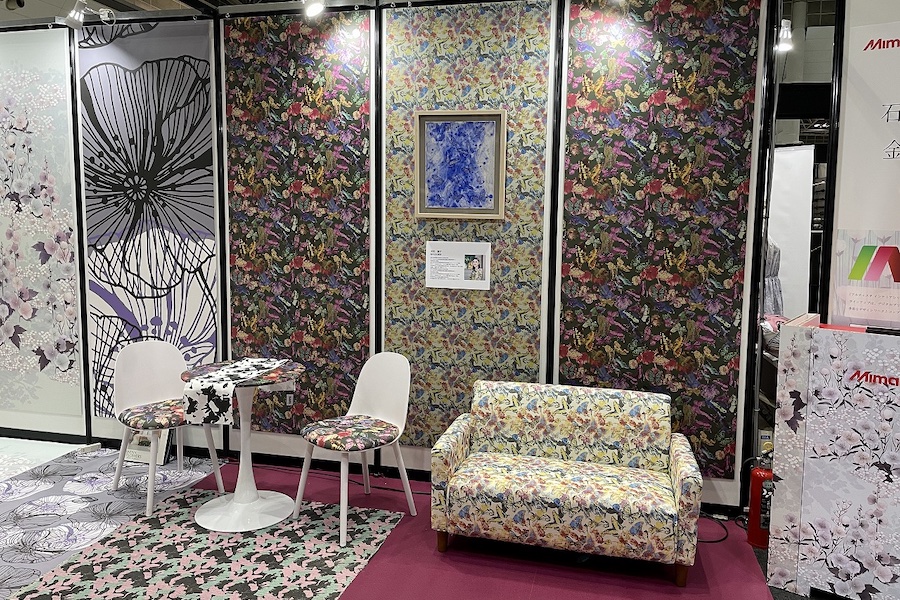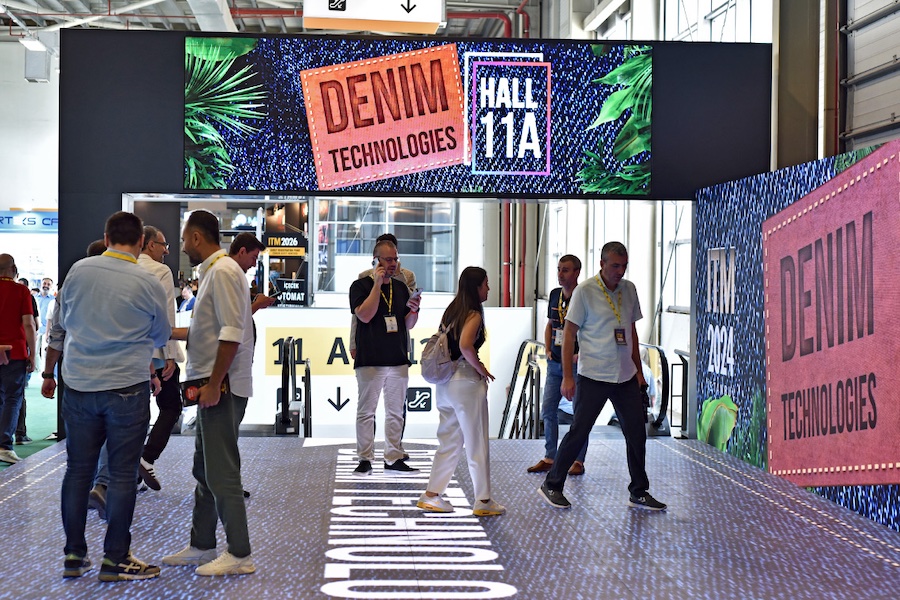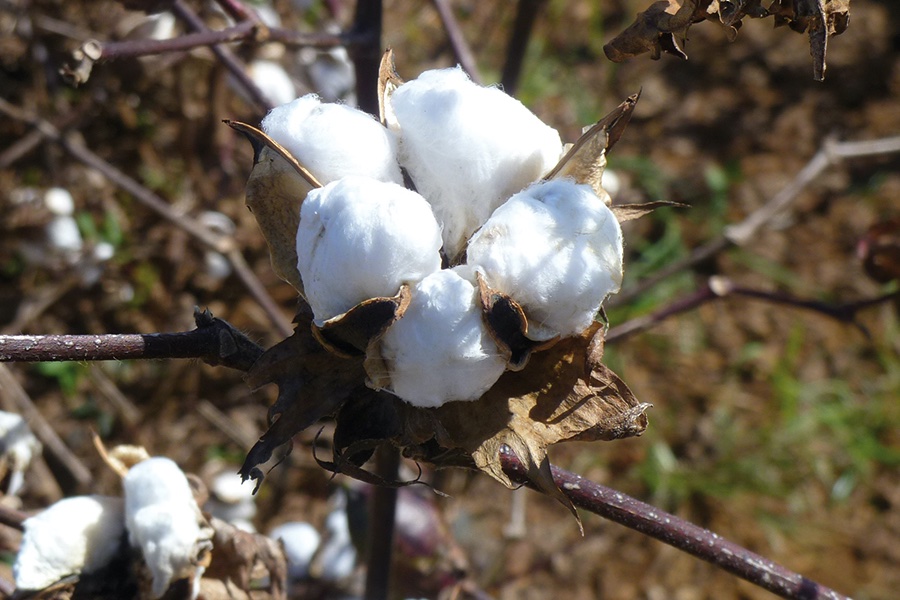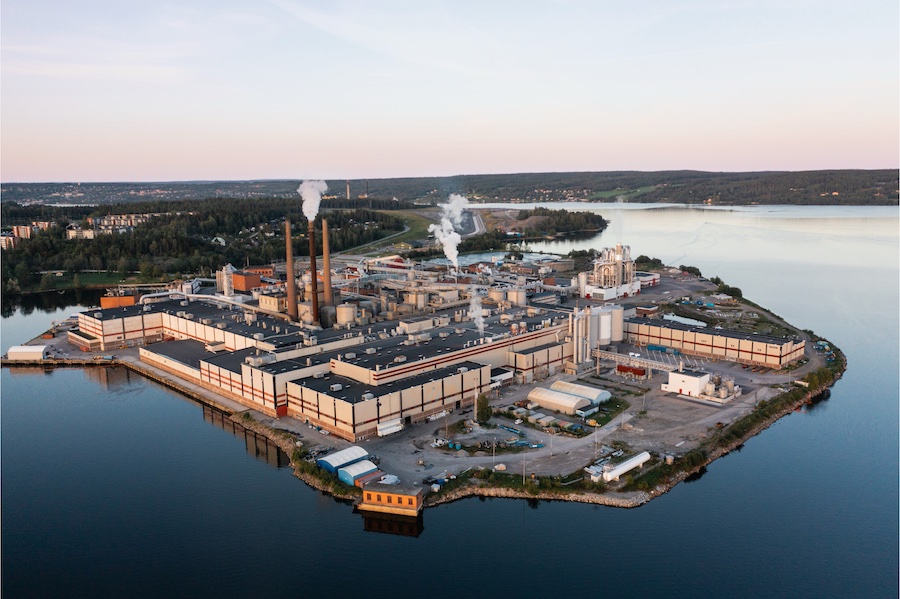#Nonwovens / Technical Textiles
2019 EDANA nonwoven statistics released
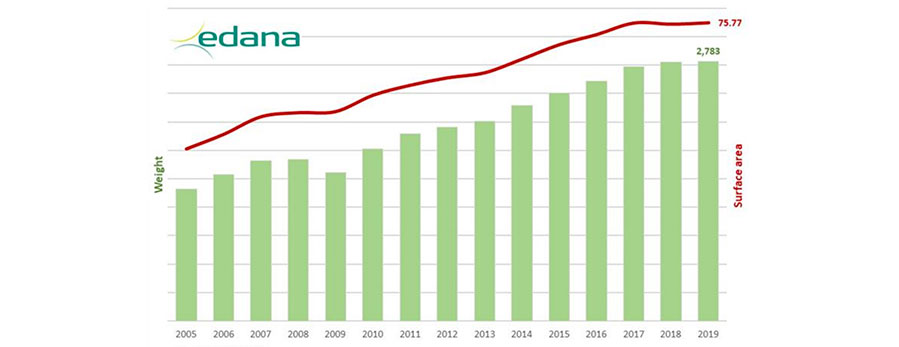
EDANA, the International Association Serving the Nonwovens and Related Industries today releasedEuropean annual statistics for 2019.
As a result of the recent economic conditions and, in particular, the downturn in several end-use sectors, figures for Greater Europe (Western, Central and Eastern Europe, Turkey, Belarus, Ukraine and Russia) show that the overall production of nonwovens has been flat in both weight (+0.3%) and in surface area (+0.5%) compared with 2018.
According to figures collected and compiled by the EDANA secretariat, production of nonwovens in Europe reached 2,782,917 tonnes. This compares with 2,774,194 tonnes in 2018 when the annual growth was 1.5%. Despite these two low growth years, the European production recorded an average growth rate of 4.4% over the last decade. Obviously, a more in-depth analysis will be necessary to draw any definitive conclusion, as diverging trends have been observed in different European countries, and between the various production processes and market segments of nonwovens. Jacques Prigneaux, EDANA’s Market Analysis and Economic Affairs Director, stated “In terms of apparent growth rates, airlaid nonwovens has been in line with the long-term trendthis year, but it is actually the hydroentanglement process that has recorded the highest growth rate,at slightly more than 5.5%. However, other bonding processes within the drylaid technologies (thermally, air-through, chemically bonded and needled punched),as well aswetlaidnonwovens witnessed either flat or negative growth rates in 2019. Spunmelt nonwovens production, compared to its performance of 2018, recorded a growthof 0.6%.”
The main end-use for nonwovens remains the hygiene market with a 29% share of deliveries, amounting to 792,620 tonnes, a growthof1.5% in 2019. The most significant increasesin percentage in 2019 were in table linen(+12.3%) and electronic materials(+6.8%). In contrast, several important sectors in terms of volumes sold showed limited (and sometimes negative) growthrates:e.g. personal care wipes (+1.6%), building/roofing (-0.3%), civil engineering (-1.5%) and automotive interiors(-2.5%). Additionally, major declines were noticed in medical applications, garments, interlinings and wall covering.
“Without the help of participating companies”,Jacques Prigneaux noted,“these figures couldn’t be compiled,and we would like to thank them again for their efforts in sending their input to us, especiallyduring the tumultuous period of the first quarter 2020. “"Thanks to a convergence of efforts ofthe participating companies, toan improved ISO definition of nonwovens and to thecontinuous monitoring of EDANA staff, these statistics are more and more relevant for planning and benchmarking purposes within member companies" said Jacques.
Only EDANA members receive the full report, as part of one of their most valued membership benefits and will soon get their complimentary copy of the report “2019 European Nonwovens Production and Deliveries”. Nonwoven producers who are member companiesof EDANAwill receive detailed data, in recognition of their participation.The2019 statistics will be also available through the EDANA Statistics App and at http://edanastatapp.org.
“As the world continues to discover the important role of nonwovens in protecting healthcare staff and patients through medical devices and personal protective equipment, such as surgical masks, respirators, gowns, drapes and coverallsduring the Covid-19 pandemic, our ongoing commitment is to work with partner associations throughout the world,alsoto harmonise nonwoven production and sales statistics, and our positions on tradeclassification rules” announced Pierre Wiertz, general manager, EDANA. “This, together with the now improved ISO nonwovens definition, should give the whole industry the visibility it deserves.”



